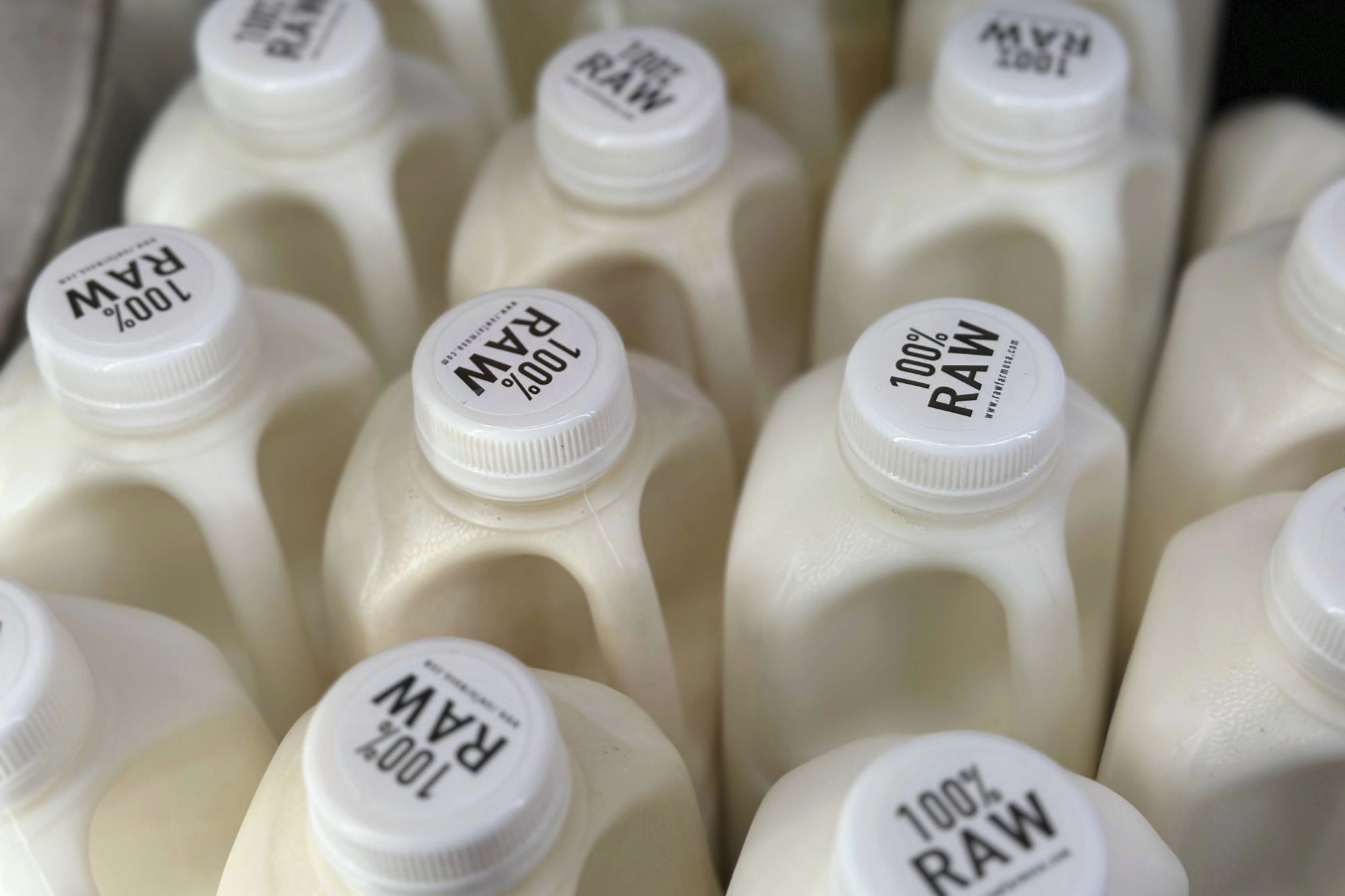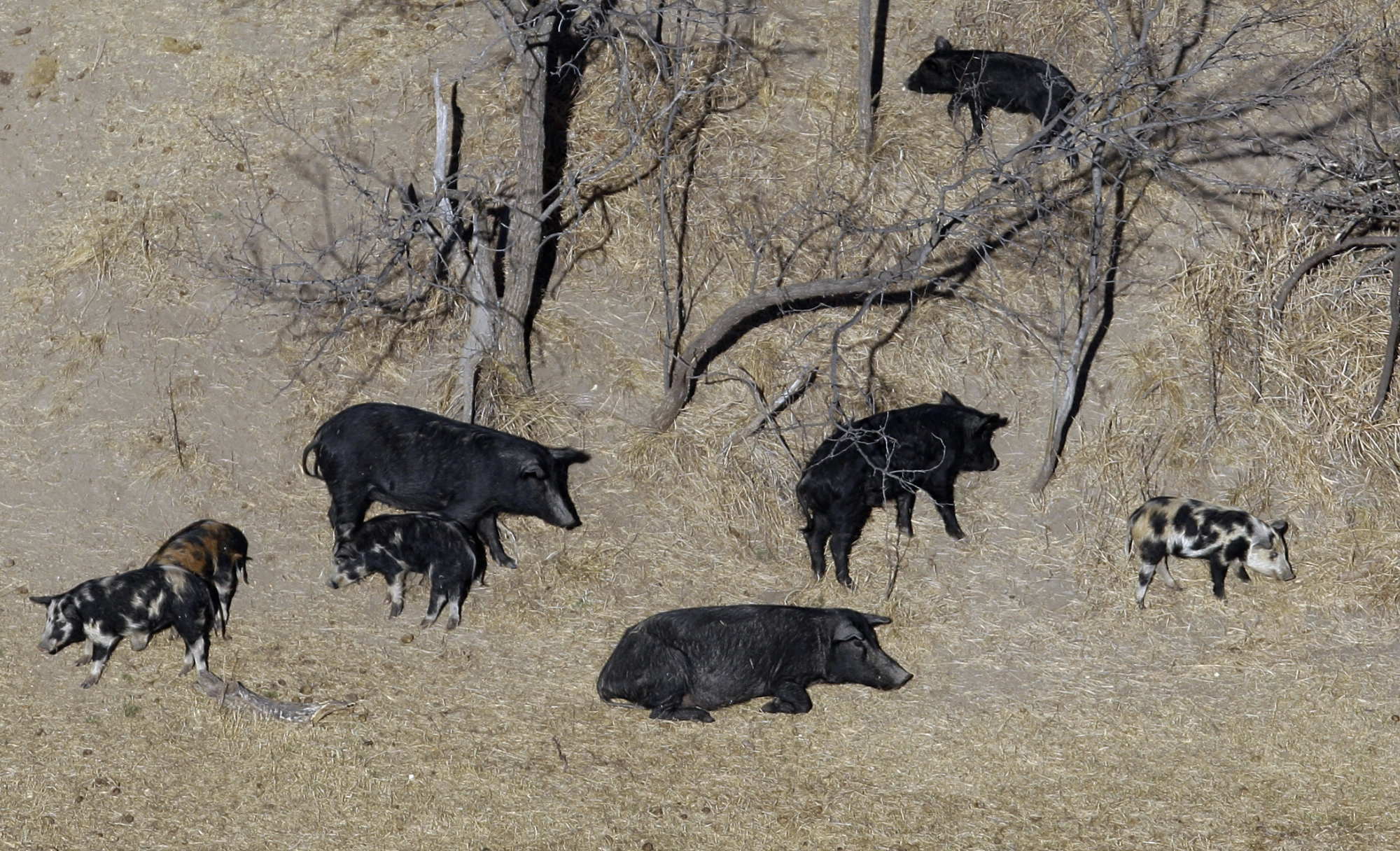The Florida Department of Health issued a public warning this week after 21 people, including six children under the age of 10, fell ill and seven were hospitalized due to multiple illnesses linked to drinking raw milk.
Campylobacter and Shiga toxin-producing E. coli (STEC) infections were both linked to the consumption of raw milk from a single farm in Northeast and Central Florida.
At least two patients have experienced severe complications, prompting state officials to intensify alerts about the health risks of unpasteurized dairy products.
When approached by Newsweek about the details of the farm, the Florida Department of Health said it did not comment "on ongoing or active epidemiological investigations."
The department said it continued to "thoroughly investigate reported occurrences of Campylobacter, Shiga toxin-producing E. Coli, and other disease-causing bacteria."
"Protecting the health and well-being of all Floridians and visitors continues to be the Department's highest priority," it added.
Why It Matters
The state health alert highlights the potentially serious risks of consuming raw, or unpasteurized, milk, which can contain harmful bacteria.
Pasteurization, a heat-treating process required for most dairy sales nationally, kills these germs. However, raw milk remains available in Florida solely for animal or pet consumption, which complicates oversight and regulation.
According to the Florida Department of Health, vulnerable groups, including children, older adults, pregnant women, and people with weakened immune systems, face a heightened risk of developing a severe illness.
STEC bacteria can, in severe cases, result in complications like hemolytic uremic syndrome (HUS), a type of kidney failure, which especially endangers children's health.
 File photo: bottles of raw milk.
File photo: bottles of raw milk.
JoNel Aleccia/AP
File photo: bottles of raw milk.
File photo: bottles of raw milk.
JoNel Aleccia/AP
What To Know
Health officials reported that the current outbreak originated from a single farm, though the farm's name has not yet been released. The infections have been traced directly to the consumption of raw milk products from this farm, prompting concern over its sanitation protocols.
Federal agencies, including the Food and Drug Administration (FDA), strongly advise against consuming raw milk due to the risk of serious illness.
Between 1998 and 2018, at least 202 outbreaks linked to raw milk were reported in the United States, according to the Centers for Disease Control and Prevention, resulting in 2,645 illnesses and 228 hospitalizations.
However, some believe that drinking raw milk is healthy, a stance supported by Health and Human Services Secretary Robert F. Kennedy Jr.
Some people believe raw milk is "more nutritious, with higher levels of enzymes, beneficial bacteria, and vitamins that may be reduced during pasteurization," Darin Detwiler, a food safety adviser and professor at Northeastern University's College of Professional Studies, told Newsweek.
"Others say it tastes better or supports local farming practices. There's also a cultural or nostalgic appeal for those who grew up drinking milk straight from the source," he said.
Kathryn J. Boor, a professor of food science at Cornell University, told Newsweek that "some people claim that they feel better after drinking raw milk relative to after consuming pasteurized milk."
Raw milk may also be considered by some to be "more natural than pasteurized milk, which is appealing to some consumers," she said.
However, "to say that raw milk is more nutritious than pasteurized milk is a fallacy," Detwiler said.
"Pasteurization only slightly reduces some heat-sensitive vitamins, like B12, but overall nutrient loss is minimal," he said, adding that the "core nutritional value of milk remains intact."
"While raw milk may contain probiotics, these are unpredictable and unregulated. The risk of harmful bacteria often outweighs any potential probiotic benefit," Detwiler added.
On farms, "milking areas are never sterile, which is how milk can become contaminated," Boor said.
The problem is that "milk that has become contaminated with soil of some nature, for example any material that may be on the cow's body, generally does not look, taste, or smell different from milk that is not contaminated," she said.
This means that "raw milk may become contaminated with bacteria from an unclean environment," Boor said, adding that in some cases, the bacteria can make people sick.
"Those who choose to consume raw milk are at greater risk of exposure to such microbes than those who choose to consume pasteurized milk," she said.
What People Are Saying
Kathryn J. Boor, a professor of food science at Cornell University, told Newsweek: "Pasteurization was developed scientifically with one goal: to ensure milk's safety while simultaneously minimizing changes in flavor, nutrition, and functional characteristics. I grew up on a dairy farm and have focused much of my career on dairy science. Just as I don't choose to drive my car without wearing my seatbelt, I also don't choose to drink milk that has not been pasteurized. At this time, there is no substitute for pasteurization in terms of risk reduction."
Darin Detwiler, a food safety adviser and professor at Northeastern University's College of Professional Studies, told Newsweek: "Raw milk can carry harmful bacteria like E. coli, Listeria, Salmonella, and Campylobacter, which can cause severe illness or even death. Raw milk has a troubling history of outbreaks of these pathogens, resulting in life-threatening illnesses, especially for vulnerable populationschildren, pregnant women, older adults, and people with weakened immune systems. Even healthy adults can experience serious complications from contaminated raw milk."
He added: "Hospitalization rate is significantly higher for raw milk outbreaks than for pasteurized milk. Fatal cases have occurred, especially in young children and immunocompromised individuals. Listeria is a primary concern due to its high fatality rate. While raw milk accounts for a small percentage of total milk consumed, it causes a disproportionately high number of outbreaks."
He also said: "There are steps that can reducebut not eliminaterisk, such as sourcing raw milk from farms with excellent hygiene practices, regularly tested animals, and chilled transportation. However, even with best practices, raw milk remains inherently risky because harmful pathogens can exist even in seemingly healthy herds. Pasteurization is still the most reliable way to kill those pathogens without significantly impacting nutrition."
Kalmia (Kali) E. Kniel, a professor and associate chair in the Department of Animal and Food Sciences at the University of Delaware, told Newsweek: "I believe that people want to consume raw milk based on the perceived benefits. In reality, the only benefits that have been identified in the published literature are those from children who grew up on small farms in Europe and were exposed to microorganisms on the farm. I believe this is more related to the hygiene hypothesis and stimulation of the immune system. There was some reduction in allergies shown in these children, which was likely based on exposure to the dust and soil on a farm.
"Again, these were very small farms in Europe, and these were not random clinical trials or complete scientific studies, so we should be cautious with interpretation. There is no scientific study to support the consumption of raw milk by children or adults that shows a lifelong benefit."
She added: "Milk has been historically pasteurized to reduce risk of illness and to increase the shelf-life of the product. Issues surrounding raw milk sales and consumption are not limited to those of food safety and public health, but also include issues of burden and capacity of state inspections, investigations, and potential for impact on the health care system."
"Following good hygiene practices on the farm and during milking can reduce the chance of milk contamination, but not eliminate it."
What Happens Next
State health officials are continuing to investigate the issue, and the Florida Department of Health said in its warning that those in the state are "encouraged to use this information to make informed decisions about their health and sources of raw milk should they choose to consume it."
Update 8/6/25, 3:23 a.m. ET: This article has been updated with a comment from the Florida Department of Health.





